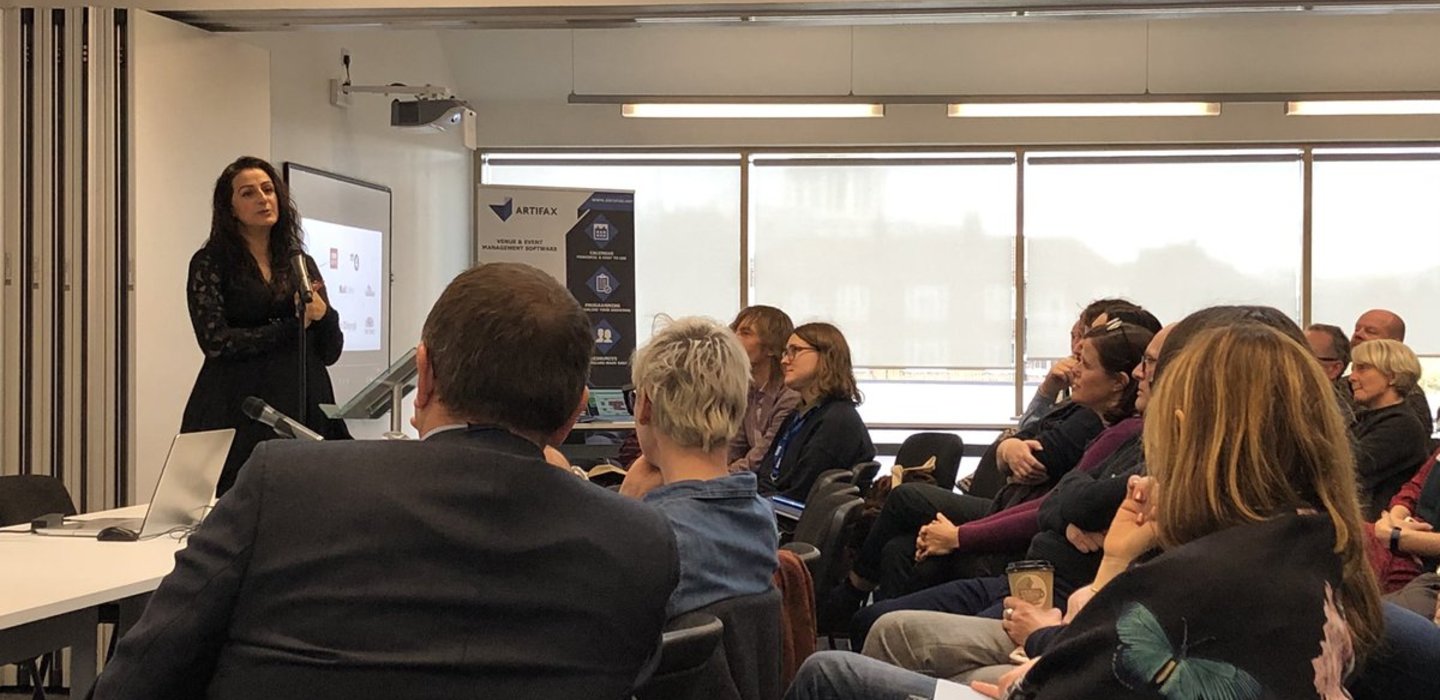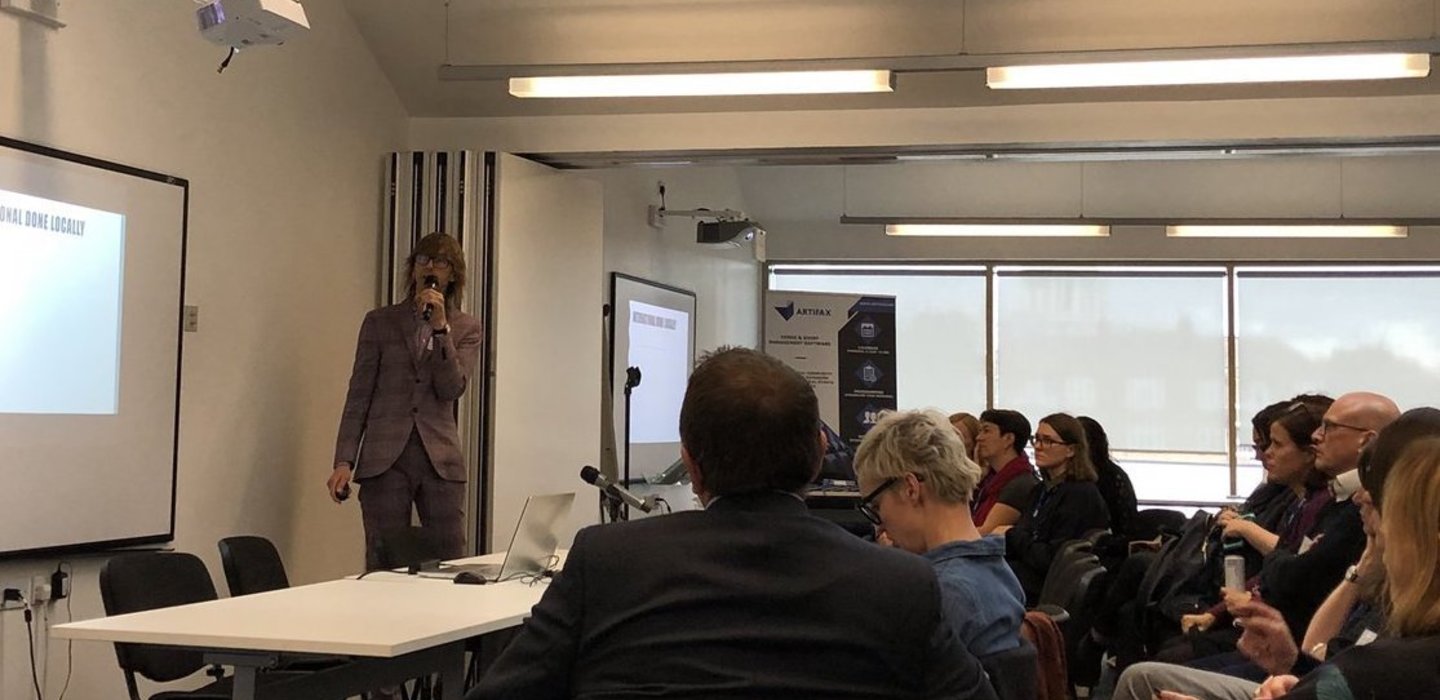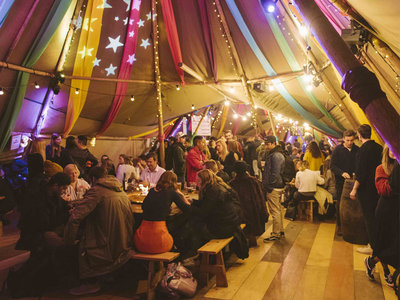It’s a big year for The British Arts Festivals Association as they’re marking 50 years of celebrating, developing and strengthening the work of its members, so we were very glad to join them for both the conference and the evening birthday party!
After an intro from Fiona Toh, BAFA’s Director, day one kicked off with a “sense of place” being explored by Syima Aslam, from Bradford Literature Festival and Steve Mead from Manchester Jazz Festival. BLF exists to appeal to all communities within Bradford, regardless of their socio-economic background - breaking down barriers to participation is key. Syima is convinced that if you look at it from this perspective then the broadest engagement will follow.
Dogged determination and complete belief in the project means the MJF is still here after 25 years - some would call that “the Manchester spirit”. Steve upended the whole presentation by posing the question as to what relevance a “genre” based festival even has these days, with the advent of playlists and listening habits transcending any preconceived genres… it’s the jazz way.


A panel of speakers shared their experiences of working with Business Improvement Districts (BID). It was clear that BIDs are very happy to work with festivals to stimulate business for retailers, cafes and restaurants.
James McVeigh from Festivals Edinburgh had some really useful techniques to offer in considering each stakeholder group, one-by-one, what their priorities are, how those coincide with yours. It was a really great approach that could be used in many different circumstances resulting in lots of positive noises around the room.

A little later there was a chance to celebrate BAFAs 50th at the Circus Bar at the Southbank. Wine, burgers and cake - what’s not to like! It was great to hear from some veterans who have been around the business from an early age and to see the organisation moving into a new phase under new leadership.
Day two kicked-off with tea and left-over birthday cake, whilst catching up with the latest developments from Manchester International Festival and the Factory project from Jocelyne Underwood.
Then David Brownlee from TRG gave his international perspective on how the sector is performing. Even though most of the data that has been collected by TRG is venue-based a lot of it is very applicable in the festival context, such as analysis of first time buyers or brand loyalty.
The Scottish Mental Health Arts Festival does not only have a fascinating model for an arts festival but also a very innovative approach to pricing, as explained by Lee Knifton. Next up was Kate Danielson to talk about Weston Jerwood Creative Bursaries and how the festivals sector can get involved and benefit from this diversity-promoting initiative.
Co-Founder and Director of A Greener Festival Claire O’Neill shared many approaches to encourage and enforce better practises around sustainability. Then came Ben Waddington from Still Walking Festival to pose the question “Where is the art in a walking festival?” And, of course, it’s a chance for people to engage in a different way with the built environment that surrounds them - taking time to look more carefully.